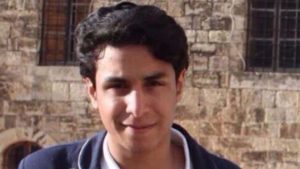An outrage even by Afghan standards
Source: http://www.kentucky.com/2010/06/23/1319649/an-outrage-even-by-afghan-standards.html#ixzz0rhN82Lav
By MOHAMMAD ILYAS DAYEE – The Institute for War & Peace Reporting
KABUL, Afghanistan — The Taliban’s execution of an 8-year-old accused of “collaborating” with foreign forces has proved too much even for Afghans hardened by three decades of fighting.
“Islam does not permit anyone to sentence a minor to execution,” said Mawlawi Mehr Del, deputy head of the Muslim clerical council in Helmand. “It is against Islam, against sharia law. God may be extremely upset with them. Those who do something like this are neither jihadis nor Taliban, they are enemies of human life.”
Islamic law prohibits the execution of anyone under 18. The Taliban’s own code of conduct, drawn up by the movement two years ago, stipulates that no commander may order the execution of minors, and anyone disobeying this rule will face retribution.
But a senior Taliban member, Mullah Abdol Bari, suggested that code of conduct did not apply in Helmand.
“The code has been changed for Helmand because the number of infidels there has increased, and the Taliban don’t have the time to hold trials,” he said. That meant that local commanders in Helmand province are allowed to use their own discretion to pass judgment on people accused of spying and punish them accordingly.
Eyewitnesses said the execution of the child, named Delawar, took place in a garden near his home in the village of Heratian in the Sangin district of Helmand province. About a dozen men took part in the hanging death of the child, who they accused of spying for British forces.
Sangin resident, Taza Gol, 60, said the boy screamed for his parents as the militants put a rope around his neck.
“I am very scared,” he said. “The Taliban had suspended such executions, but now they have started again. Who knows how many more will be executed without trial.” The child’s father, Abdol Qodus, who initially reported that the Taliban had killed his son, now claims “ghosts” killed his son. Abdol Qodus has declined to talk further.
The child’s grandfather, Naqibollah, said his son, Abdol Qodus, is afraid to leave his house for fear the Taliban will kill him for reporting his son’s murder to authorities.
Naqibollah also claimed there was actually another motive behind the execution. He claimed that his grandson was killed because the child’s father was too poor to pay the $600 local Taliban commanders had attempted to extort from him.
“Abdol Qodus’s relationship with the Taliban had got worse recently,” Naqibollah said. “For this reason, the Taliban asked him for money as a tithe, but he didn’t have the money. The regional Taliban commander, Hajji Malem, was upset with him and then hanged his son the next day under the pretext he was spying.”
Leaders of the Alokozai tribe, to which the dead child’s family belong, demanded that the Taliban provide an explanation for the boy’s death.
“If the Taliban do not have reliable evidence, then the Alokozai tribe will take a stand against the Taliban. Should they treat the Alokozai in this manner again, severe action will be taken against them,” the statement said.
Faruq Nangialai, 35, a resident of Lashkargah, said he spoke for many in the region when he condemned the lynching.
“As a result of this action, people have developed an extreme hatred of the Taliban. It is a great sin to do violence to a child, to hang him. If I were a judge, I would not forgive them for this act … but would punish them severely,” he said.
ABOUT THE WRITER
Mohammad Elyas Dayee is a reporter in Afghanistan who writes for The Institute for War & Peace Reporting, a nonprofit organization that trains journalists in areas of conflict. Readers may write to the author at the Institute for War & Peace Reporting, 48 Grays Inn Road, London WC1X 8LT, U.K.; Web site: www.iwpr.net. For information about IWPR’s funding, please go to http://www.iwpr.net/index.pl?top-supporters.html.
This essay is available to McClatchy-Tribune News Service subscribers. McClatchy-Tribune did not subsidize the writing of this column; the opinions are those of the writer and do not necessarily represent the views of McClatchy-Tribune or its editors.



